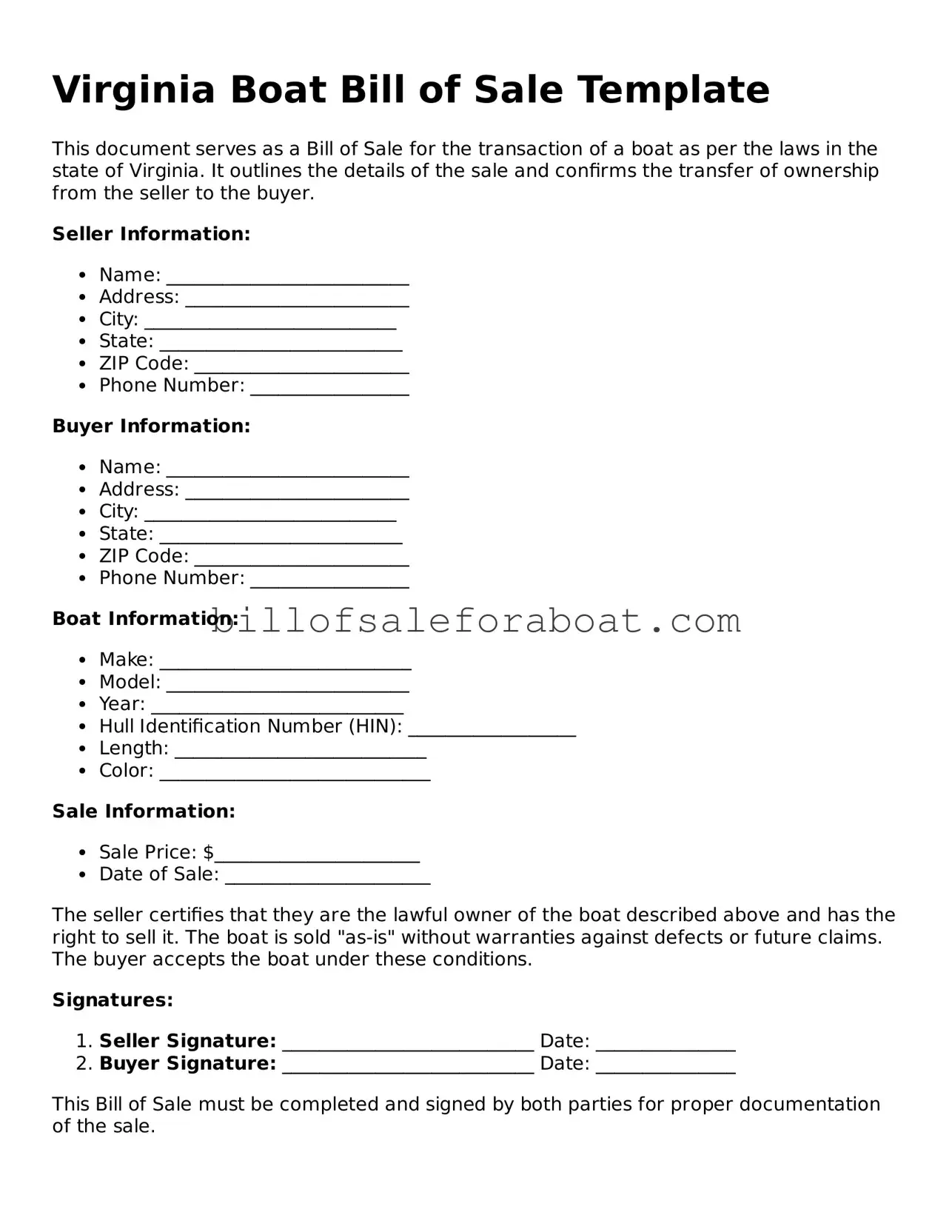Boat Bill of Sale Template for Virginia State
The Virginia Boat Bill of Sale form is a legal document that facilitates the transfer of ownership of a boat from one party to another in the state of Virginia. This form serves as proof of the transaction, outlining essential details such as the buyer and seller's information, the boat's description, and the sale price. If you're ready to navigate the waters of boat ownership, fill out the form by clicking the button below.
Open Boat Bill of Sale Now

Boat Bill of Sale Template for Virginia State
Open Boat Bill of Sale Now
Fast, simple form completion
Finish Boat Bill of Sale digitally in just minutes.
Open Boat Bill of Sale Now
or
Free PDF
